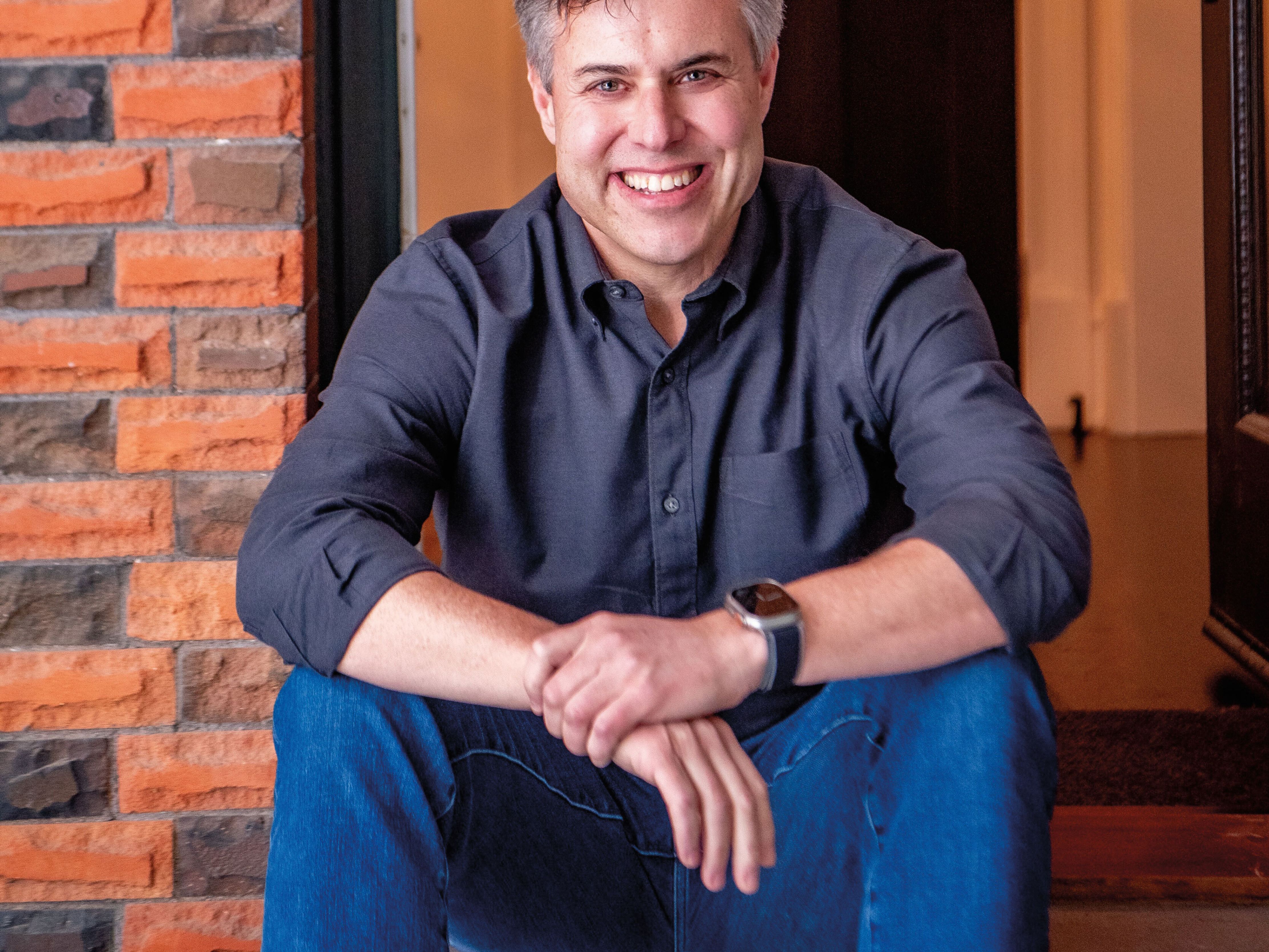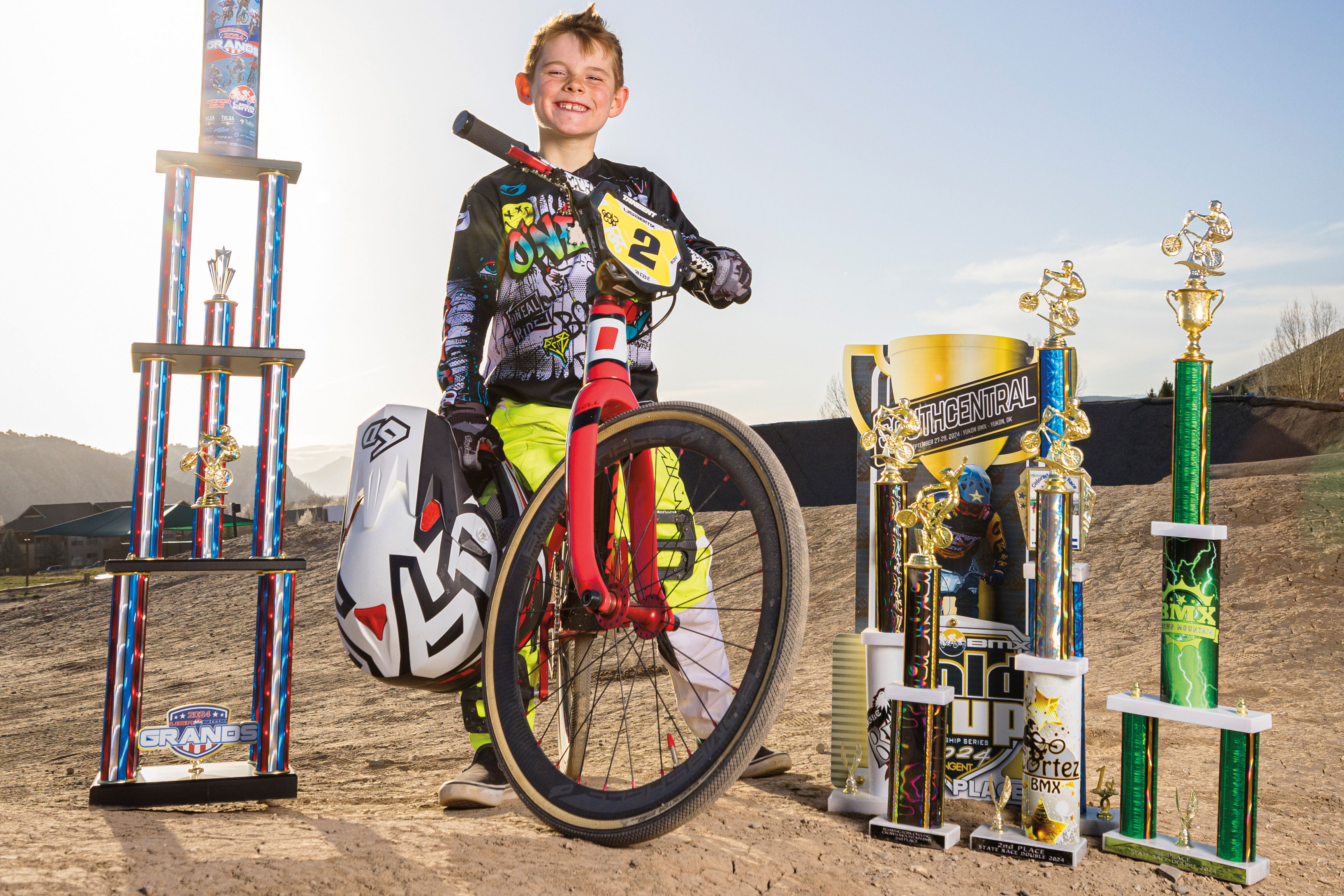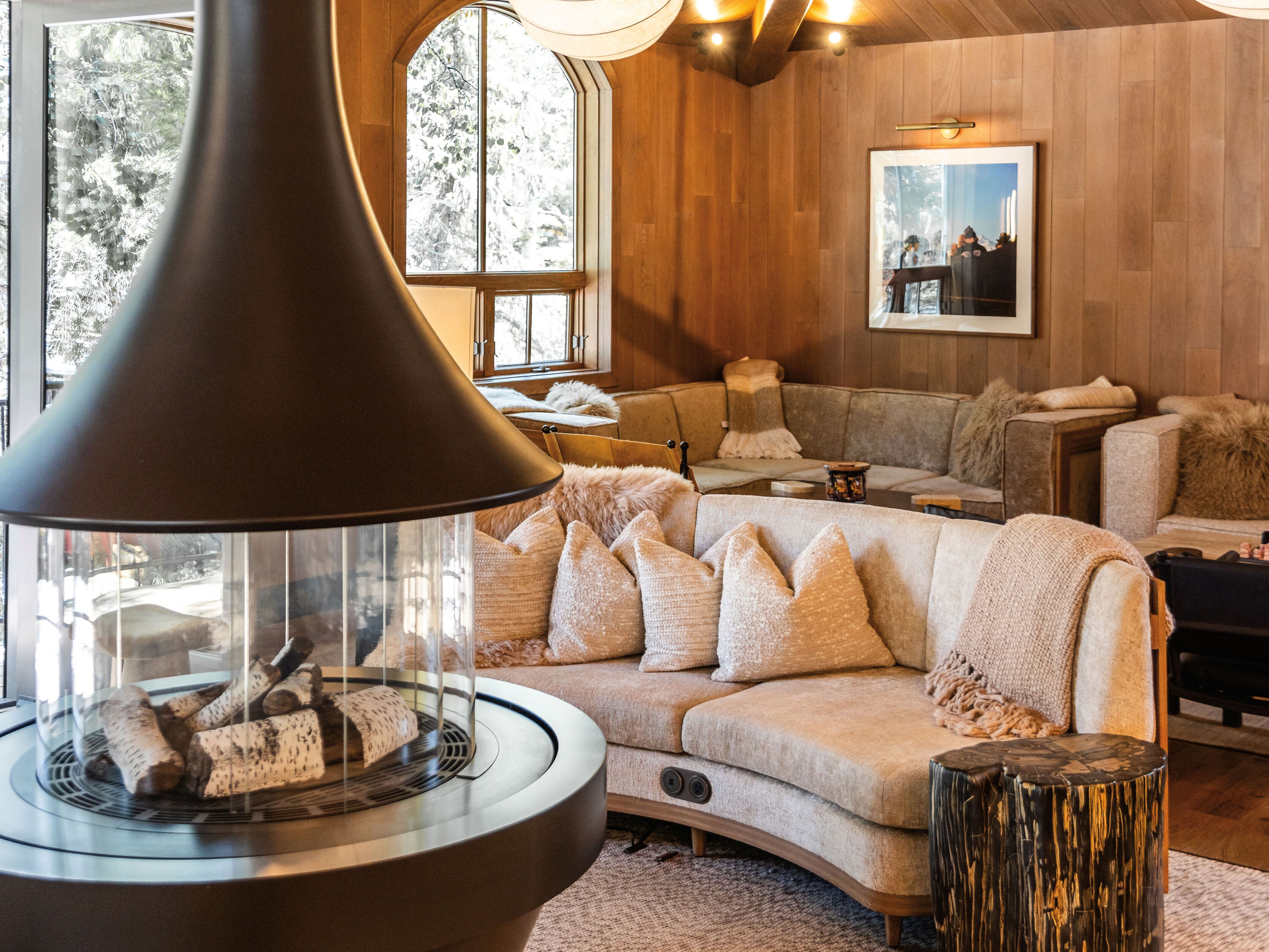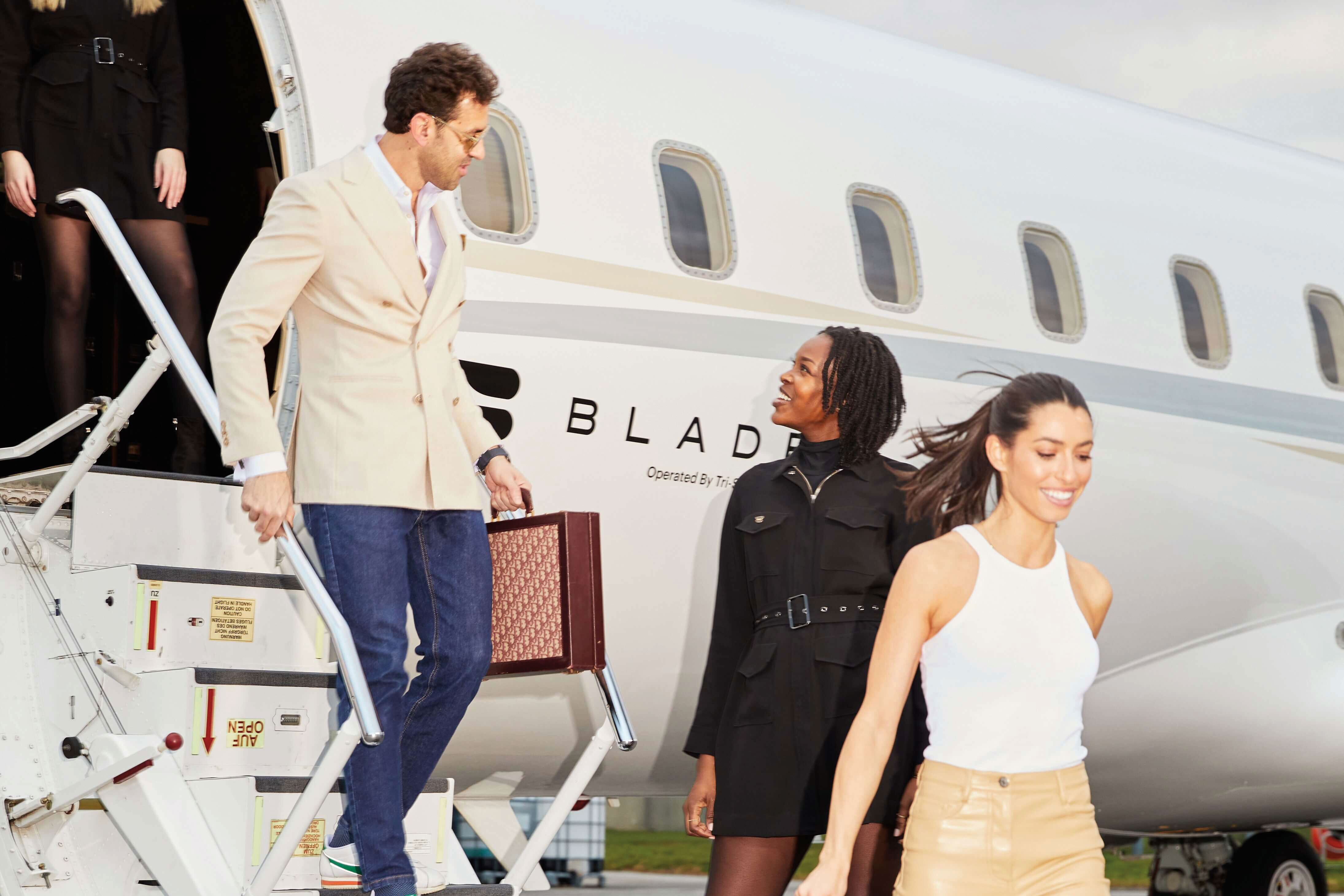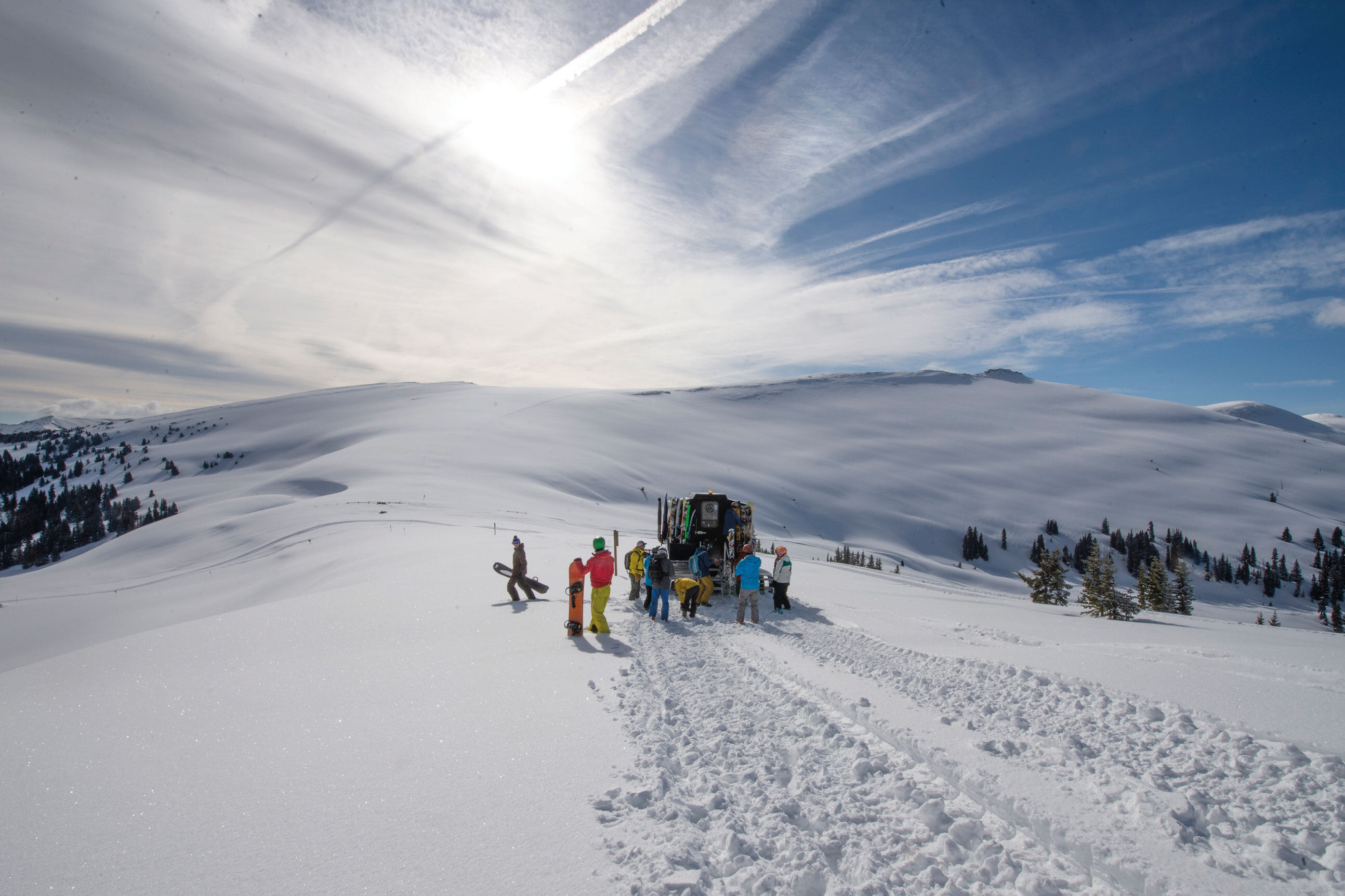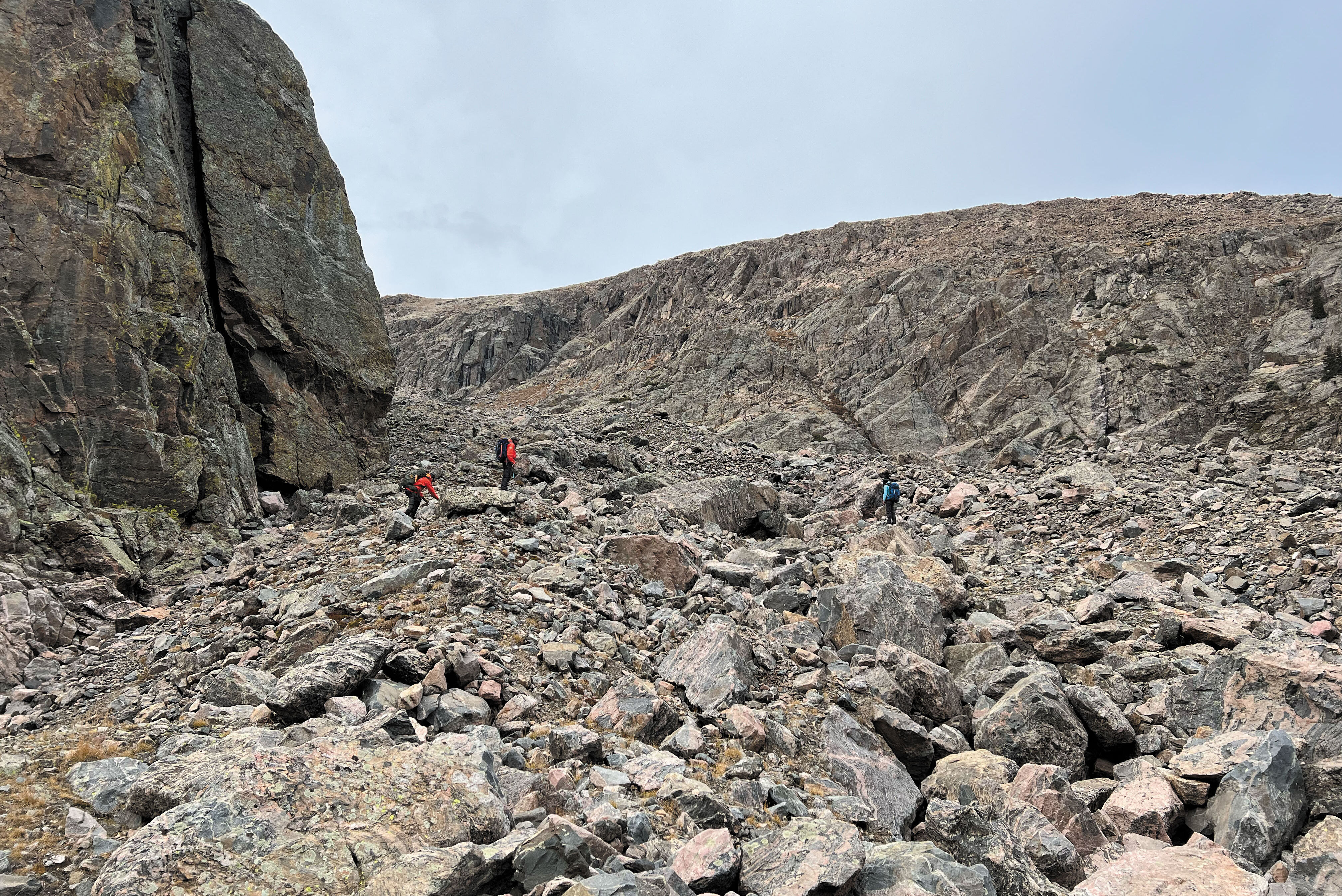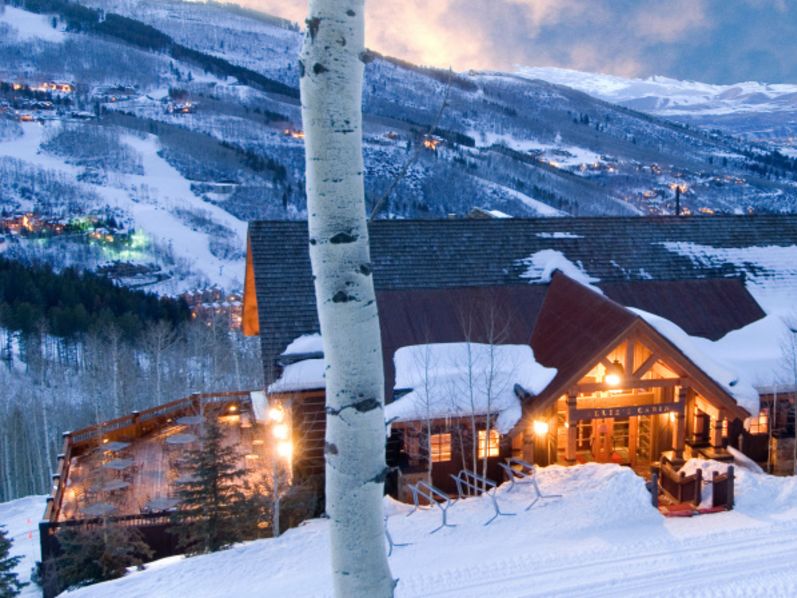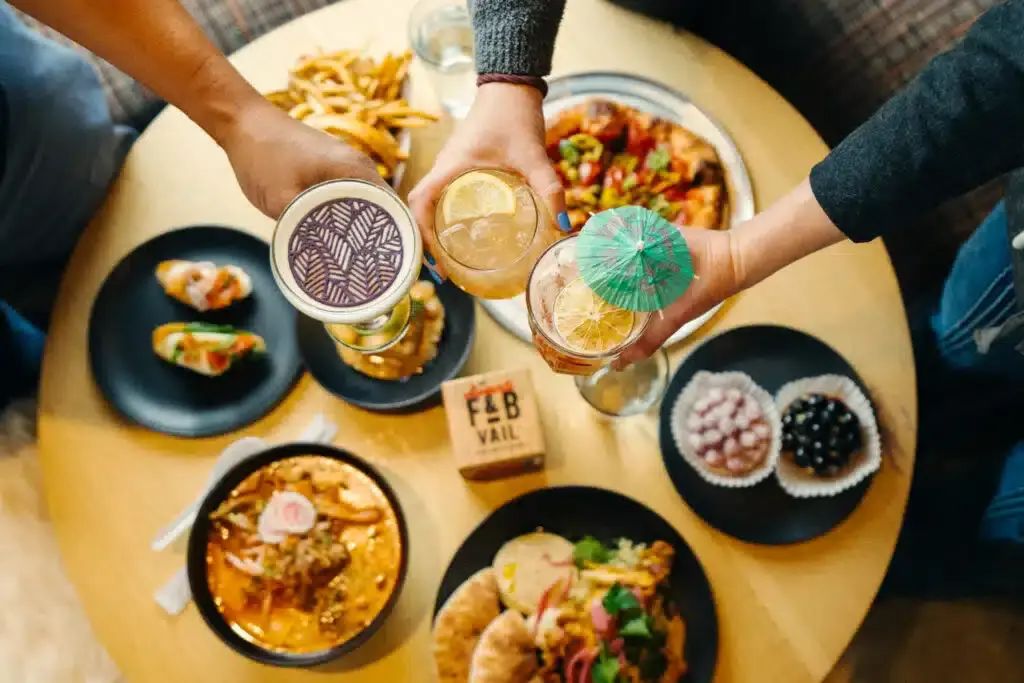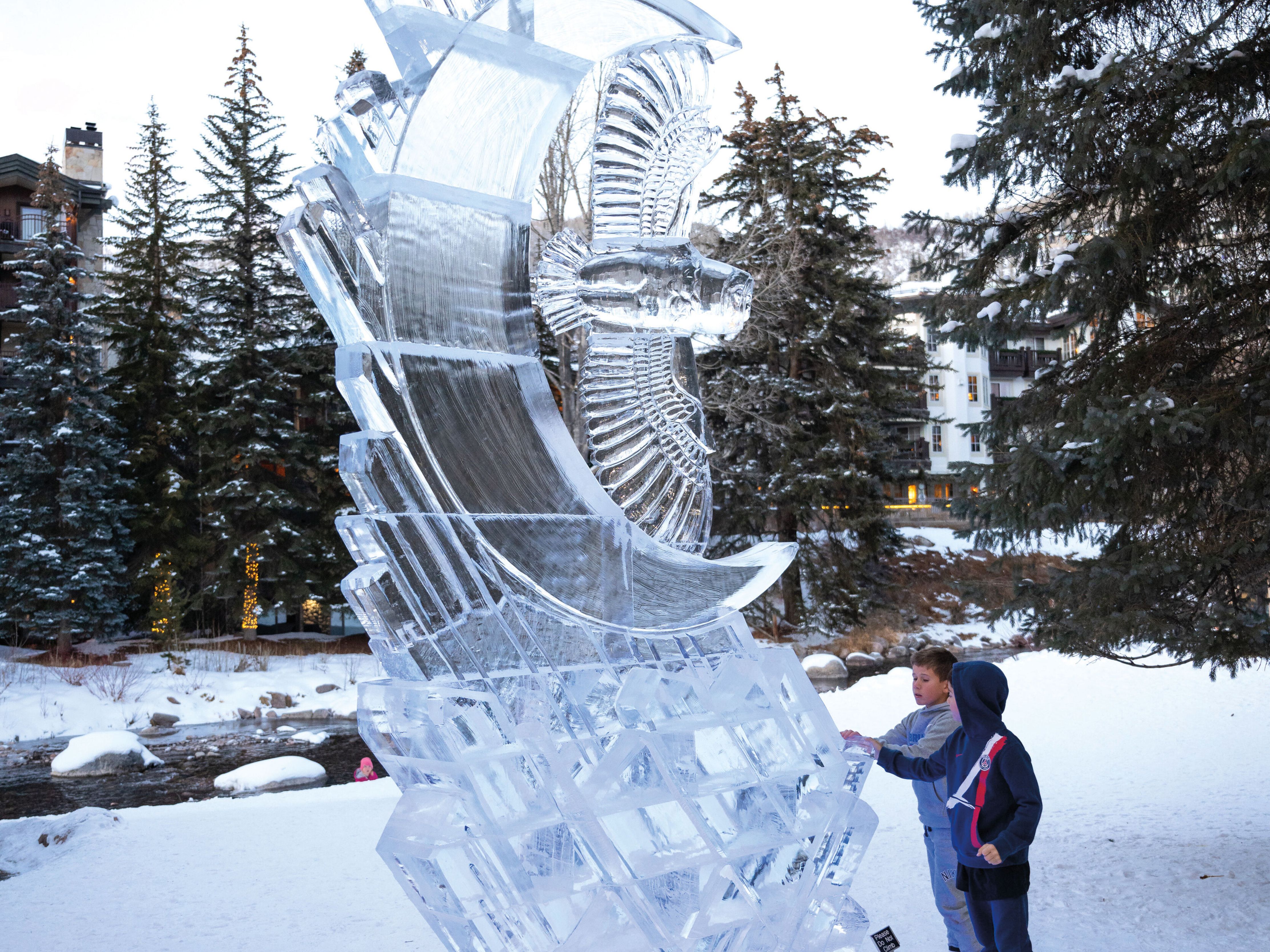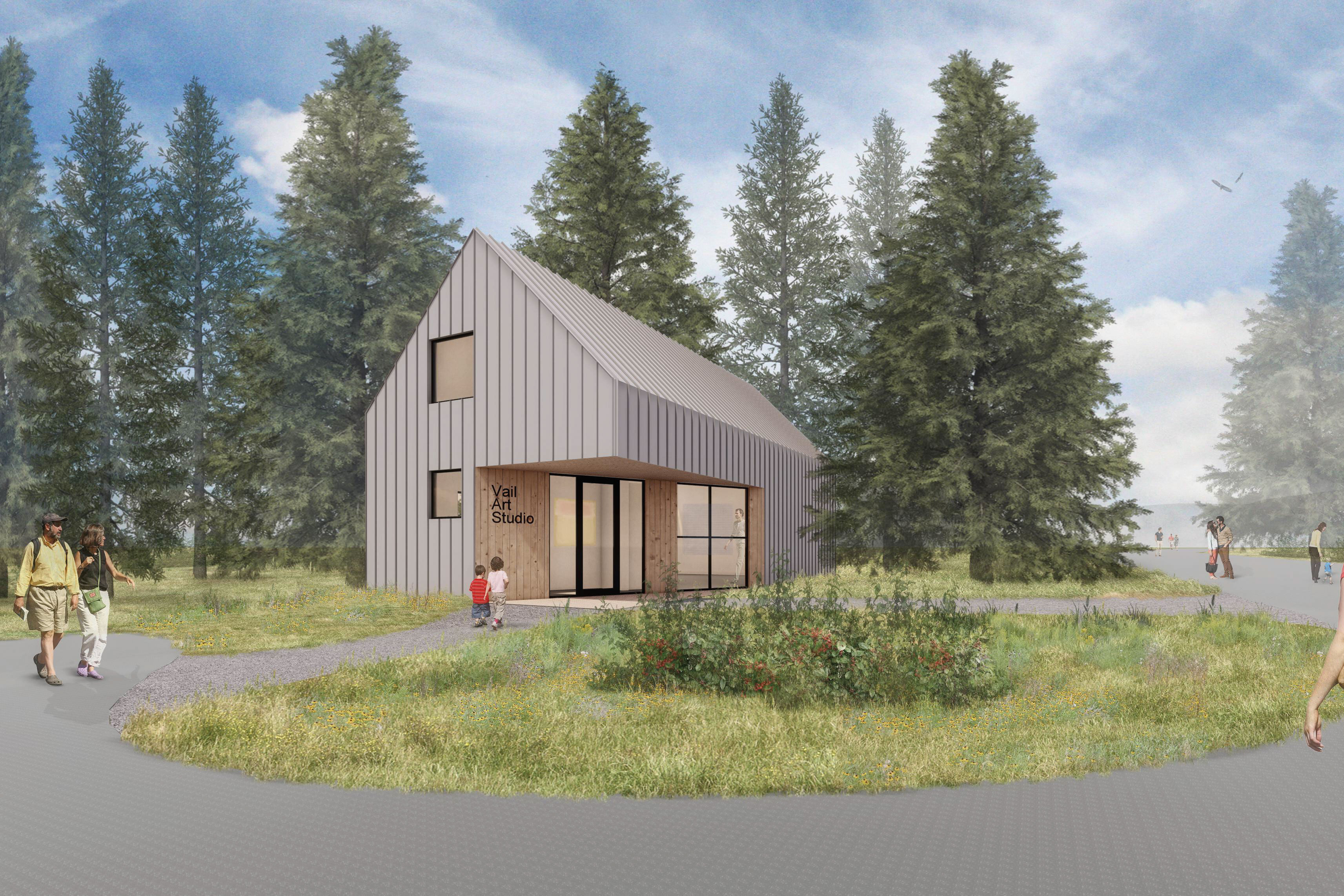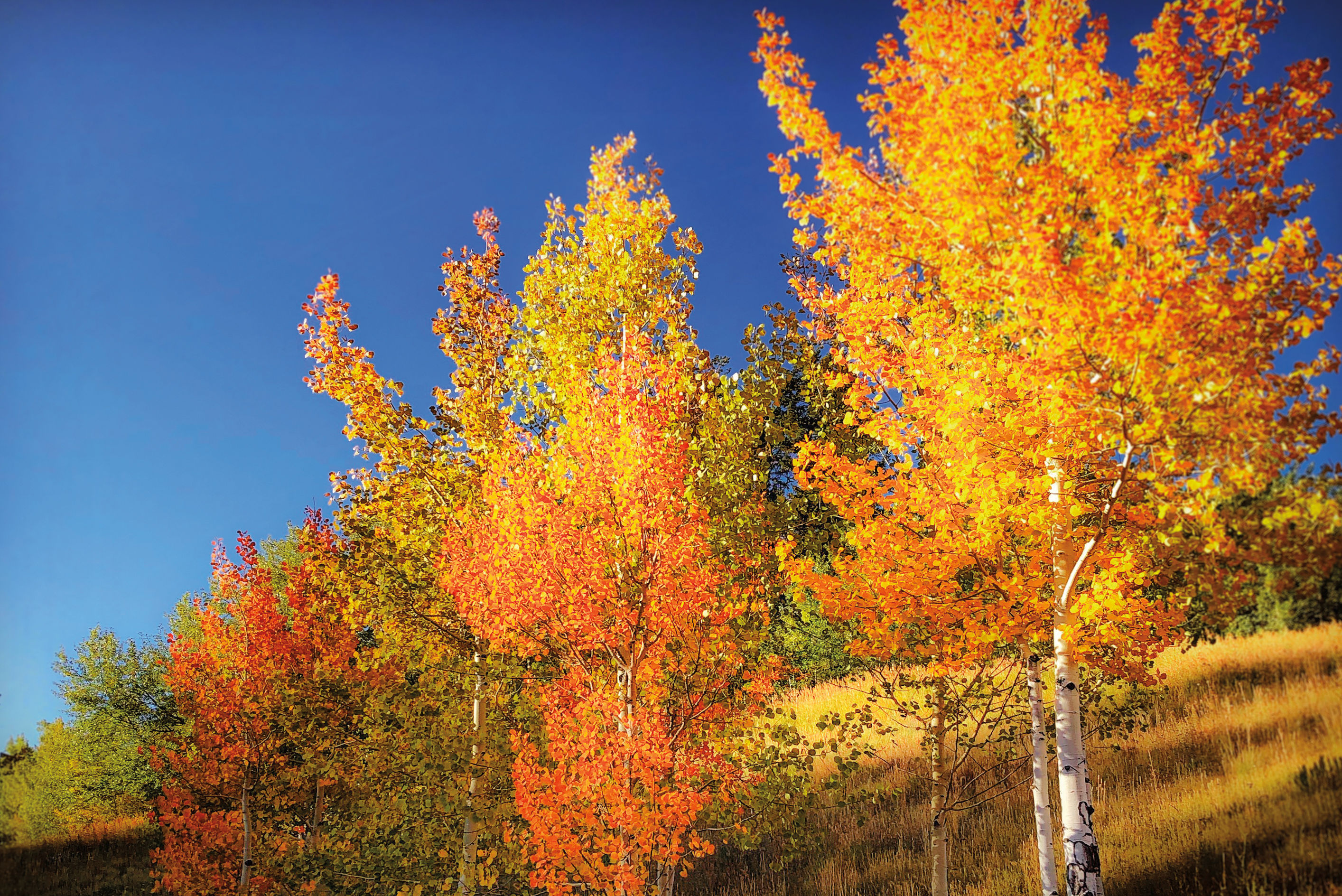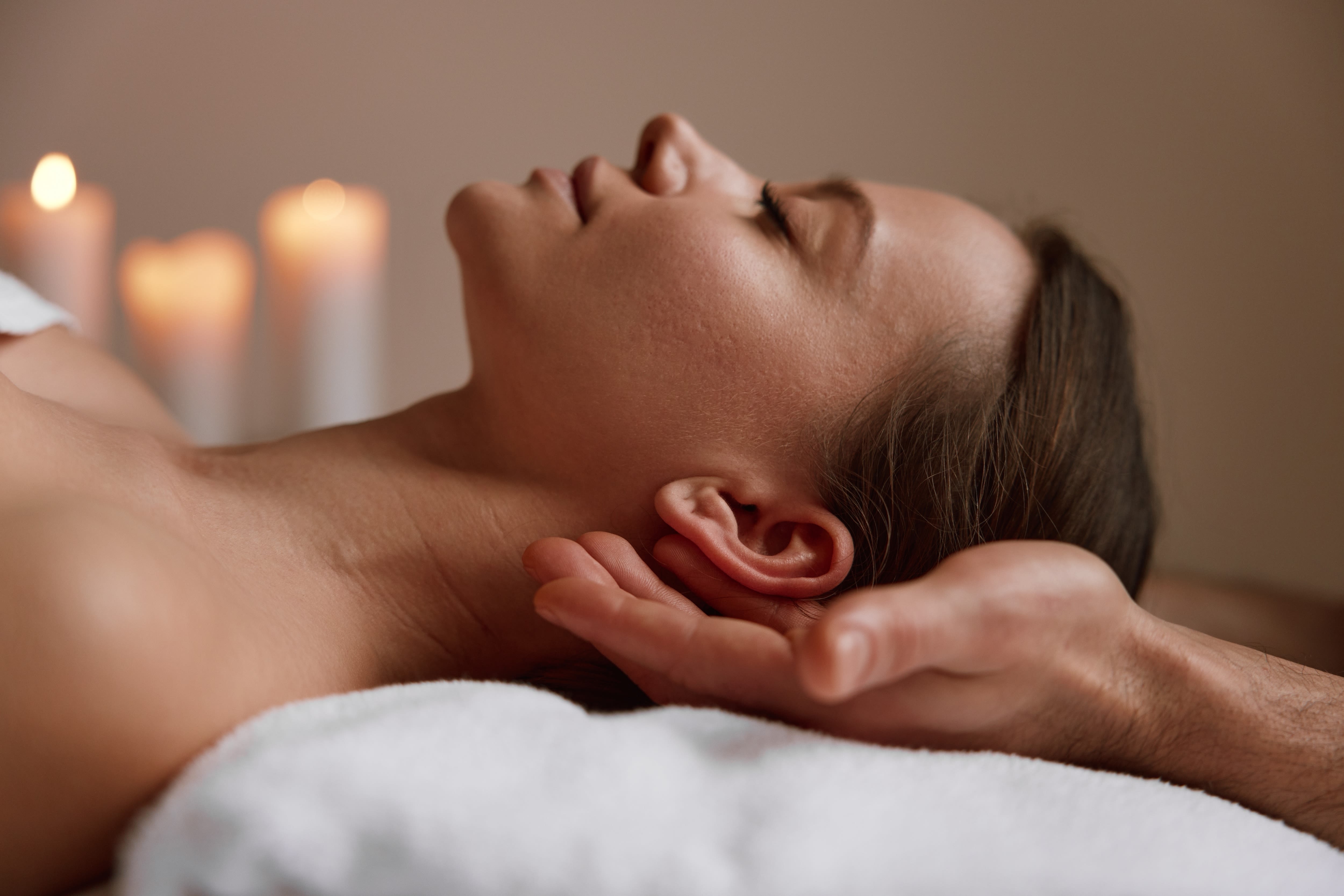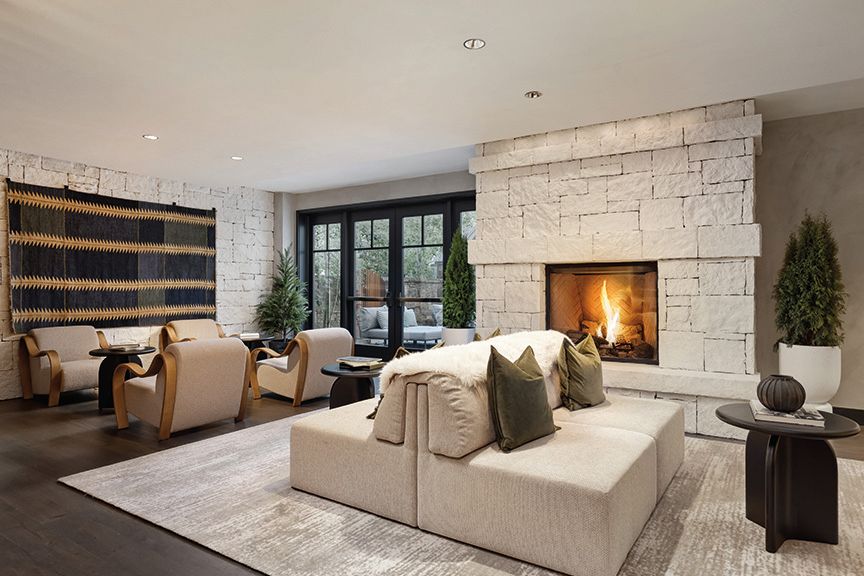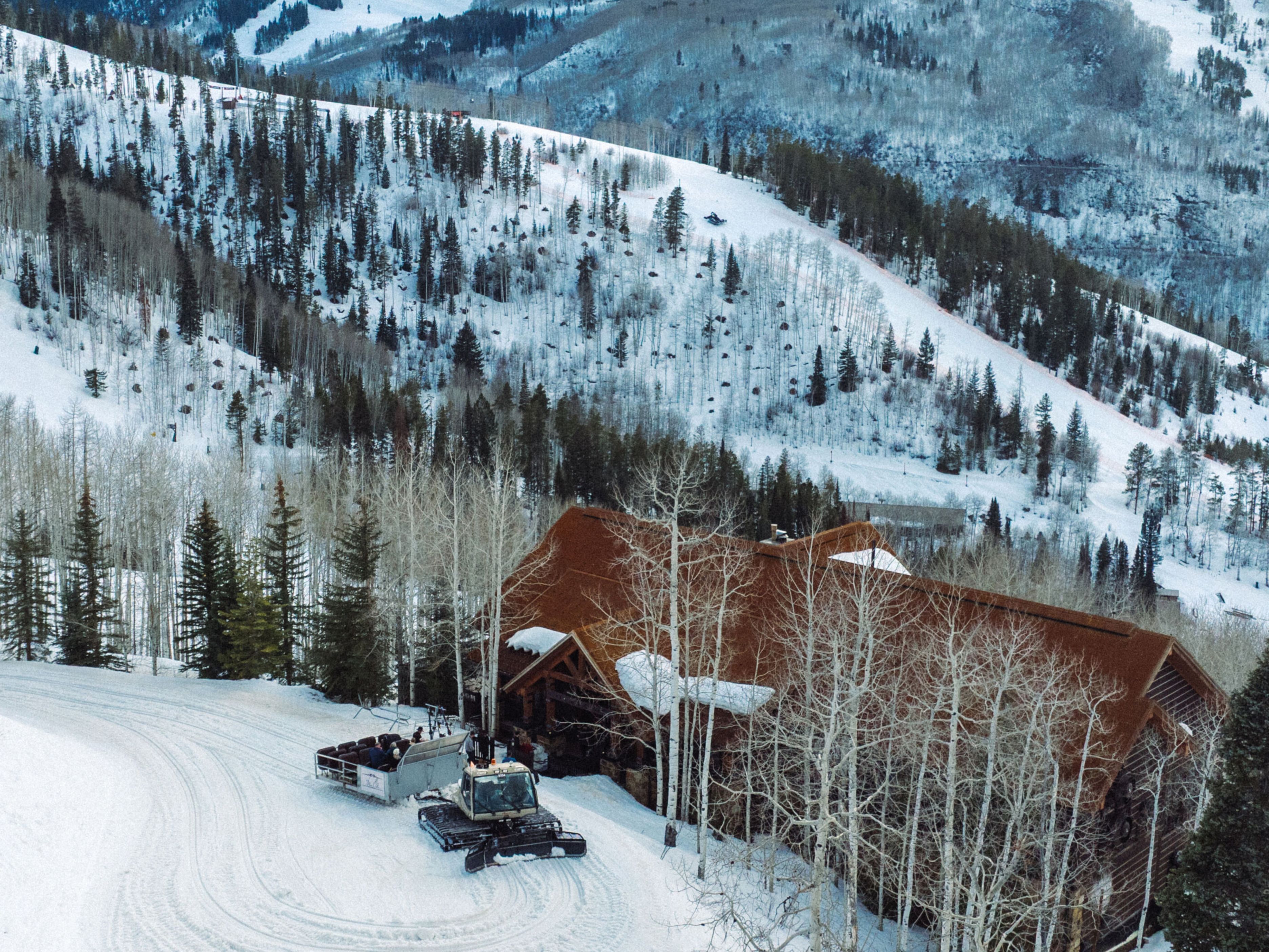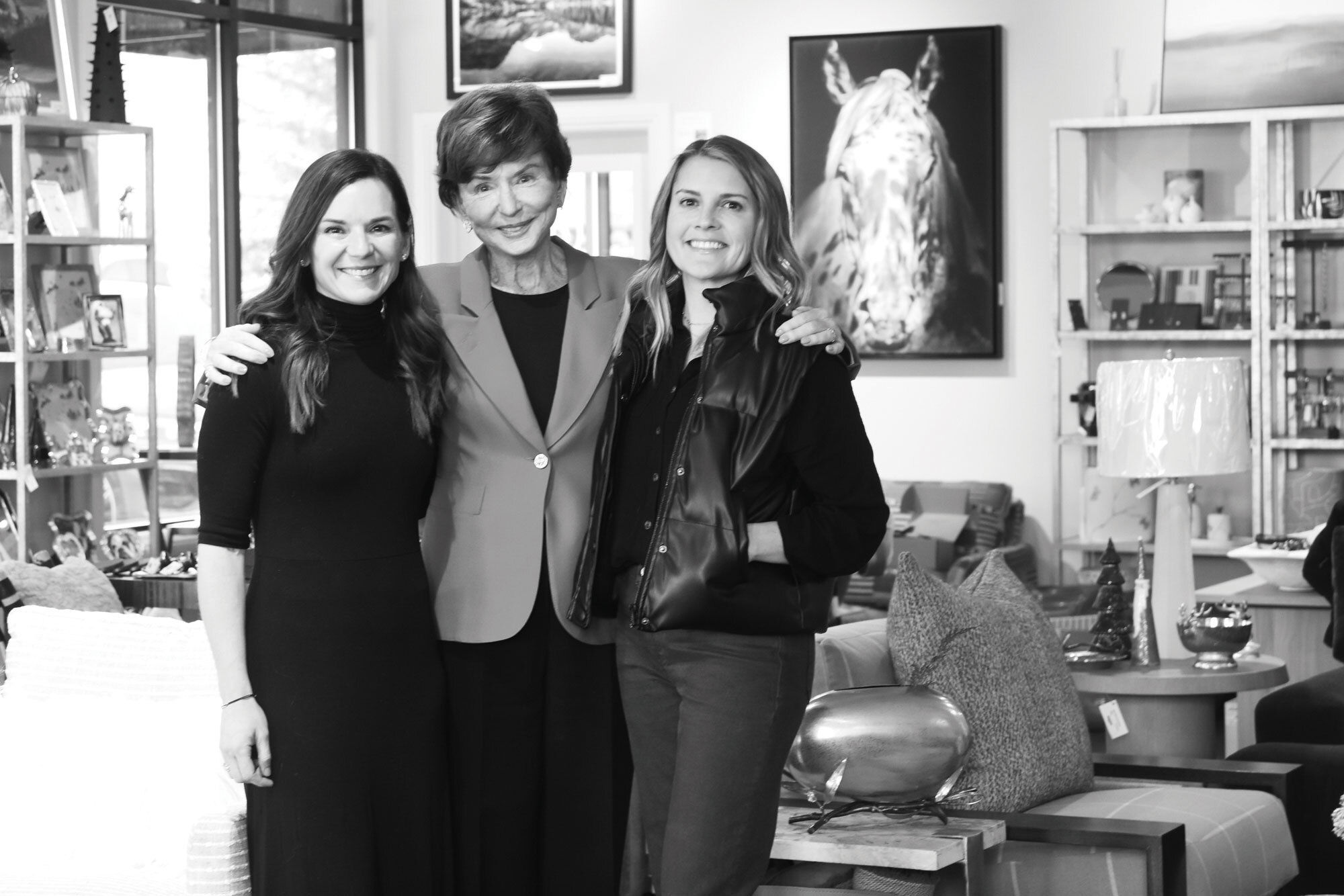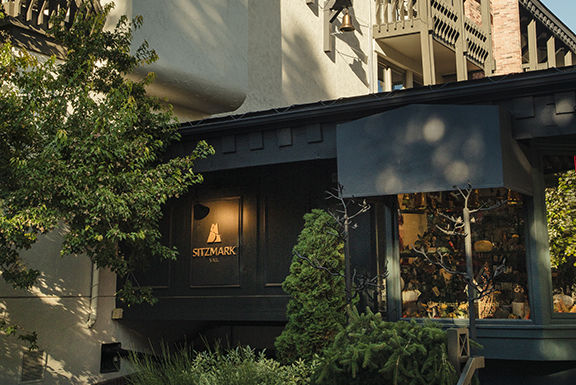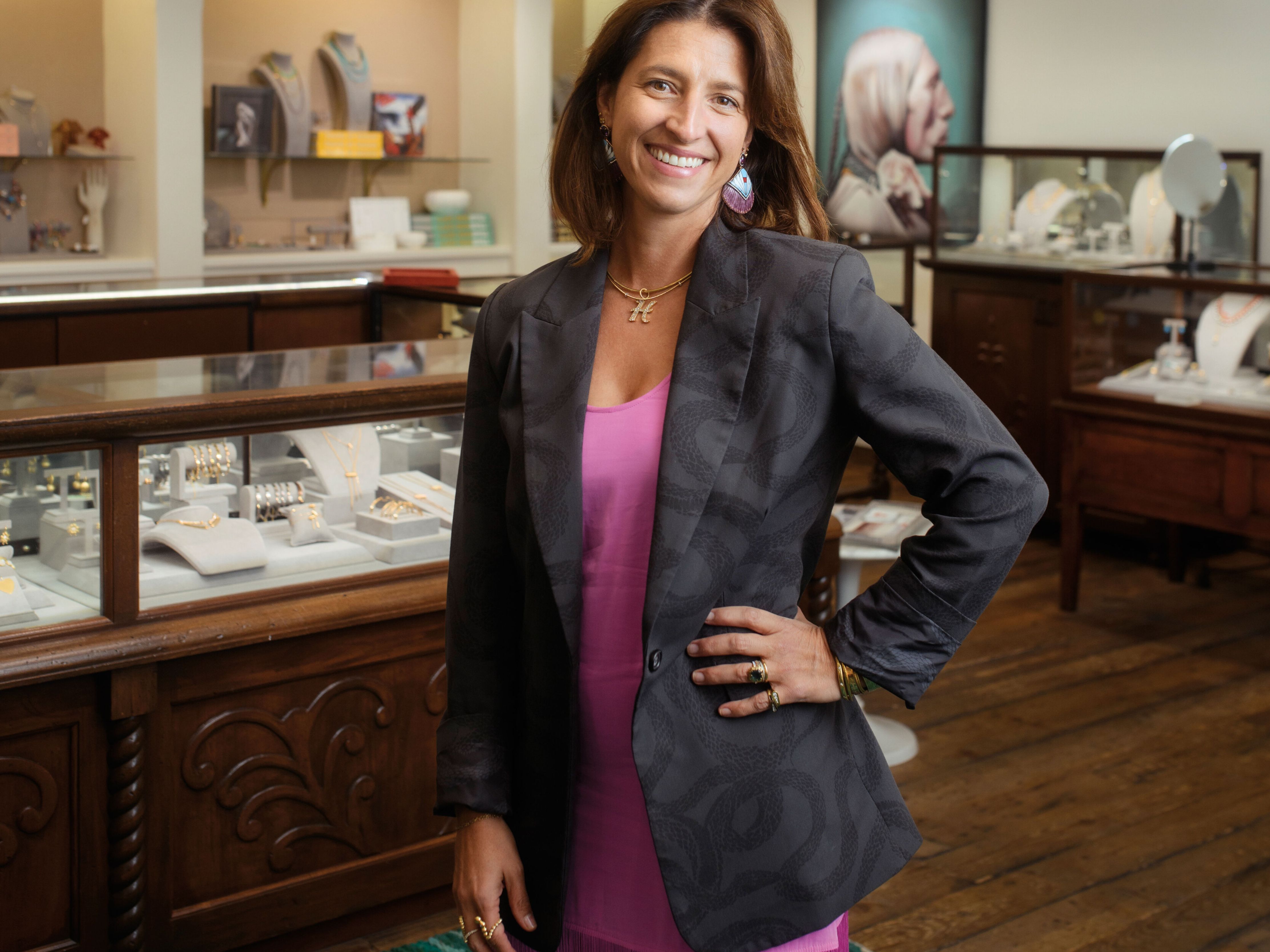Father’s Son
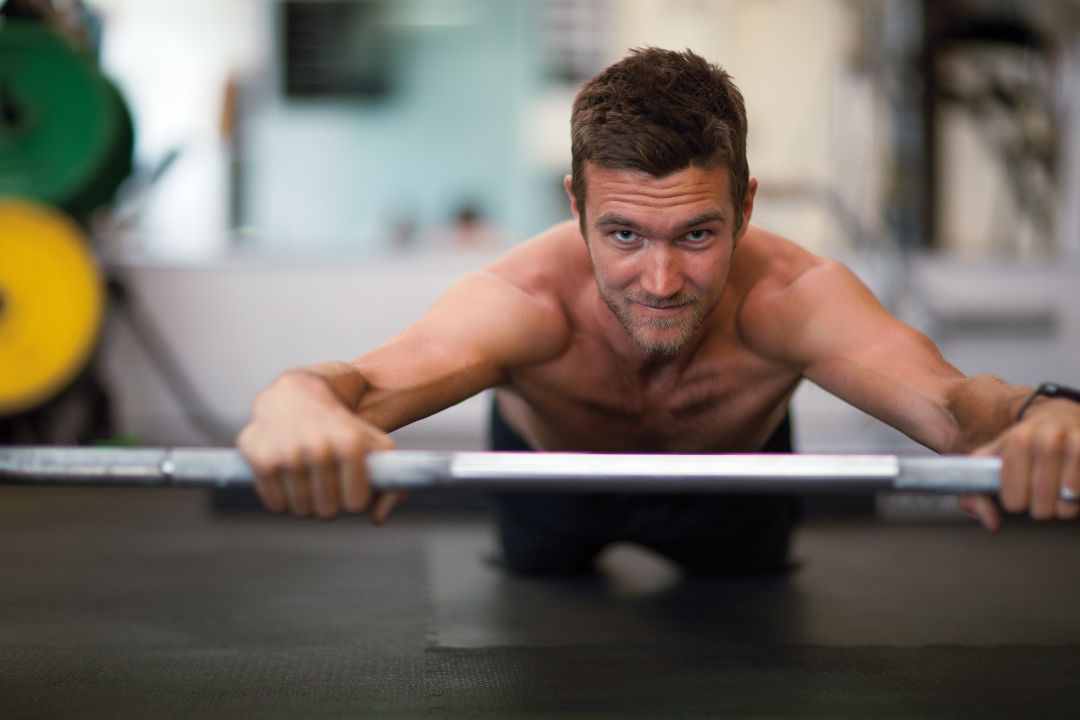
Image: Charles Engelbert
As I was always told, I was born on a powder day. My parents decided to take a day off from powder skiing to make sure I entered the world properly. They named me Sylvan—meaning “of the woods”—because of what they hoped would be my future lifestyle, which is pretty fitting because it’s where I spend most of my days now.
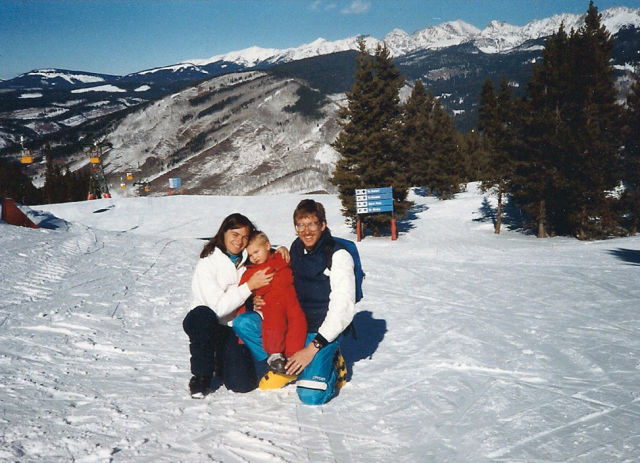
Tashina, Sylvan, and Lyndon Ellefson at the top of Vail Mountain in 1989
I started skiing as soon as I could walk. And before I could walk I was in my dad’s backpack, skiing, on his shoulders at least. I remember getting on the chairlift, being taken off of his back, and the chair swinging around and being lifted up in the air and taking off. I pretty much skied every single weekend with him during the winter while growing up, until he passed away in the summer of 1998.
I was 11 years old.
My dad, Lyndon, was a foreman at Vail Mountain, but he was also a competitive mountain runner who helped start the US Mountain Running Team. He was at the World Championships in Cervinia, Italy, on a training run with a couple of teammates. They were traversing the glacier that separates Italy from Switzerland when my dad fell through an ice bridge and was killed. I remember that day probably better than any other day in my childhood: I remember the pajamas I was wearing, that we had just eaten eggs for breakfast, all those sorts of things. I was there when my mom was told. My dad’s best friend called, and I just saw my mom pause for a second, and she started screaming. I knew something was wrong with my dad, that maybe he was hurt. I remember asking if my dad was OK and ... and I remember looking up at my mom, and she just shook her head.
That’s the thing that hits me the hardest. To this day, he is a big reason why I’m still participating in the sport, following the dream.
Right after he passed that winter, my mom didn’t know what to do with me because I was so active skiing with him all the time, so she enrolled me at Ski Club Vail, in alpine racing. I went from being a free skier having fun every weekend, to my dad passing, to skiing every day in the morning and running gates in the afternoon. I just embraced the full alpine lifestyle. It was great for me because I was around friends, I was around people who cared about me, and I was having a ton of fun doing it.
It wasn’t really until high school that a couple of my friends were like, “You should give Nordic a shot.” And I was like, “Why would I ever do Nordic?” It’s such a hard sport, and I knew that my dad hated it, and it just didn’t seem that appealing to me. But I’m the kind of guy who likes to try things just for the heck of it, so I went and gave it a shot my freshman year at Vail Mountain School, and thought, “This is OK.” I started figuring out pretty quickly that my Nordic was much better than my alpine. So in my junior year, when I was 16, I switched over to Nordic skiing, and I qualified for the junior Olympics. By my senior year I was ranked second in my age group in the country, and at junior nationals that year I was a three-time all-American. In college, at Bates, I qualified for NCAAs all four years, then I came home and started ski racing professionally on the national circuit for Team Homegrown, as in athletes all grown in Vail.
Now Nordic skiing is my full-time job. An average day in the summer is waking up at 6:30, eating breakfast, doing a roller ski in the morning, going home and getting some recovery food in, then a little yard work. Around 4 o’clock it ranges from running to biking to roller skiing again to strength training in the weight room. Winter is racing. Racing is the only time in my life where I’m able to feel everything in my body, to feel all my muscles working together. The combination of my mind and my body all as one is an amazing feeling. You know, looking up a hill and saying, “I need to be up that hill in twenty or thirty strokes”—and telling your body you can do that.
That’s the coolest part of Nordic for me.
I never thought I would be disappointed if I didn’t get to go to the Olympics, because the Olympics seemed like such a far-fetched goal for me. Now Sochi is more on than off my mind. It’s a dream that I’ve had for a very long time. I would love to show my mom and dad how dedicated I was to this by grabbing a spot on the Olympic team. I think my dad would be proud that I made it to the point where I am now, he’d be happy, and he wouldn’t really care whether or not I made it to Sochi. Because to embrace the lifestyle of an athlete and be able to push your body to a point where a lot of people cannot is something special. That is what he loved about his sport, and that is definitely something that I love about my sport.
I love life. I love Vail. To be able to wake up in the morning and hear the elk bugle or going to sleep at night and having to pull on the down comforter in the middle of summer. And in the middle of winter, to be able to go skiing on a bluebird day and have lunch in jeans and a T-shirt.
The support that I’ve had in the Vail Valley, from my family and friends and sponsors—I wouldn’t be where I am now without that. It sounds like an Oscars speech, but it’s so true. It’s not as much the financial support as it is the moral support. A couple buddies from high school are paying to have a logo on my racing suit. It just says “Homeboys.”
I’ll be carrying all of Vail with me to Sochi.

